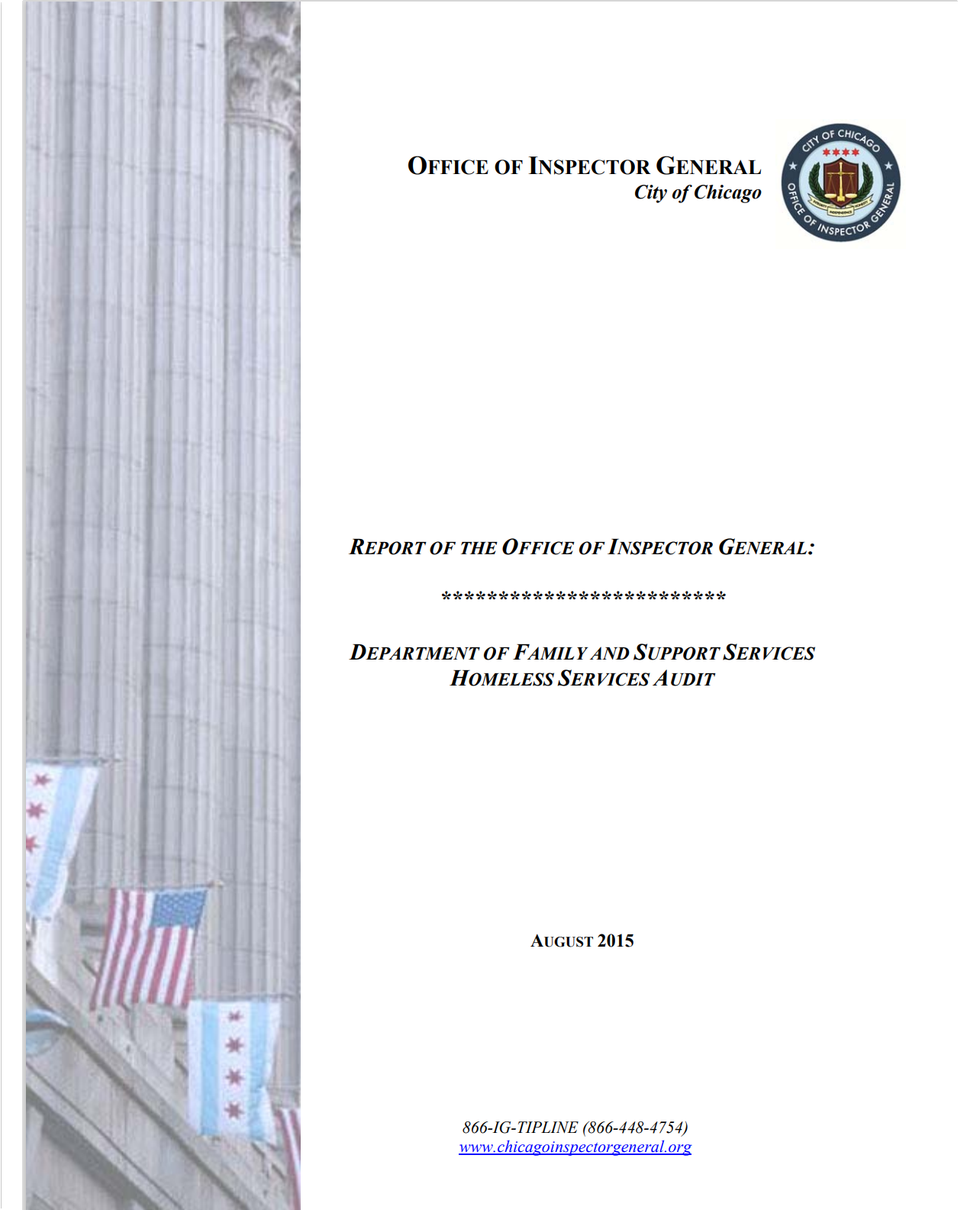Audit of Department of Family and Support Services Homeless Services
Summary
The Office of Inspector General conducted an audit of the Department of Family and Support Services homeless services. The audit focused on how DFSS selected and monitored 57 homeless service providers, known as “delegate agencies,” in 2013 and 2014.
Executive Summary
The Office of Inspector General (OIG) conducted an audit of the Department of Family and Support Services (DFSS) homeless services. The audit focused on how DFSS selected and monitored 57 homeless service providers, known as “delegate agencies,” in 2013 and 2014. During those two years DFSS spent approximately $60.0 million on homeless services provided by delegate agencies.
The objectives of the audit were to determine if:
1. DFSS employed a process designed to ensure that it selected only qualified delegate agencies to provide homeless services;
2. DFSS’s audit process ensured delegate agency compliance with program requirements; and
3. DFSS held delegate agencies accountable for program performance.
Subscribe to the OIG Bulletin to get notified about future publications.

